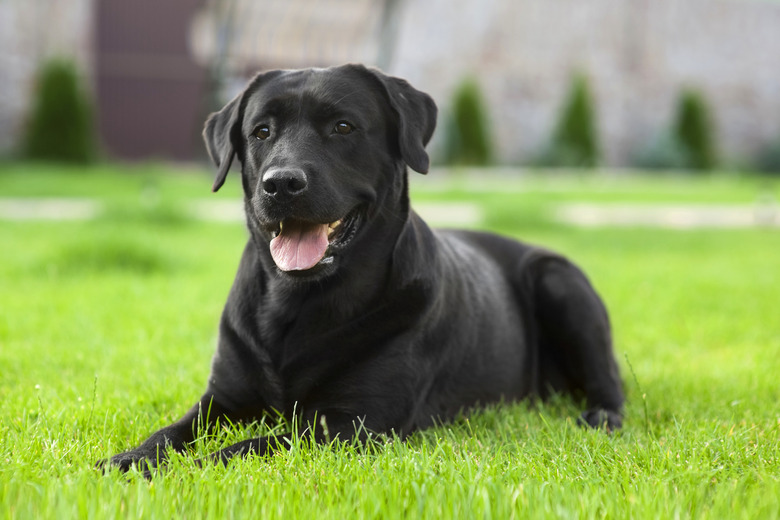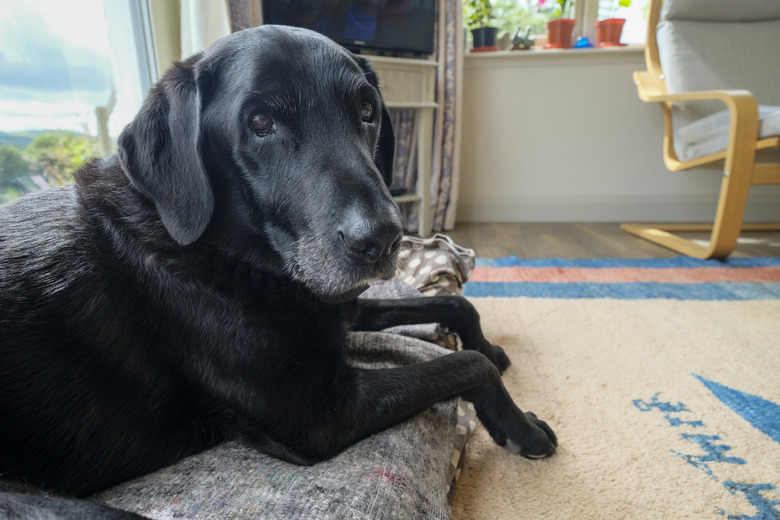Home Remedy For Dry & Itchy Skin On A Black Lab
Many factors can contribute to dry and itchy skin on your black Lab. Some causes are environmental while others can be related to grooming. While uncomfortable, Labrador puppy itching can easily be treated from home and does not require a visit to the veterinarian unless the Labrador itchy skin continues following at-home treatments.
Labrador itchy skin and coat
Labradors are moderate shedders throughout the entire year, with an increase during spring, when they lose their heavy winter coats. Brushing can help cut down on shedding and improve itchy skin to an extent. The more you brush your itchy Lab, the more loose fur you remove and, consequently, the less they will have to scratch to relieve themselves of the itch. You should never totally shave any part of your Lab unless it is medically required. When the thick hairs of their outer coat begin to grow back, it will cause discomfort, irritation, and itching.
If you catch your Labrador puppy itching after trying at-home solutions, they will require a vet visit to rule out skin fungi, bacteria, parasites, and allergies. Fleas and mites can hide especially well in a black Lab's fur. Dogs will often scratch themselves excessively if they have fleas or mites on them in a desperate attempt to get rid of the annoyances. Excessive itching almost always leads to skin irritation.
Grooming a Labrador's itchy skin
Labs generally do not require regular bathing. For the most part, they should only be given a full bath if they roll in something dirty or smelly. Over-bathing your dog can cause their skin to dry out, making them itchy and removing the natural oils their coat needs to maintain a healthy shine. If you notice your dog's skin is flaky or dry, use a homemade "dog shampoo" consisting of one cup of ground dry oatmeal and one part warm water, and a half cup of baking soda. Massage this mixture into your dog's coat, avoiding their eyes, and allow the shampoo to sit for one minute, then rinse and dry. Oatmeal will add moisture as well as soothe minor allergic reactions.
Healthy diet for healthy coat
Certain essential fatty acids are required in your dog's diet to maintain skin and coat health. Dog-safe foods that naturally include essential fatty acids include fish, corn, peanuts, and olive oils. Maintaining this routine daily is an effective at-home solution that will have a visible improvement on any Lab itchy skin and coat and will help put a stop to dry, flaky skin.
Environment affects Lab itchy skin
Sometimes your environment can play a role in creating Labrador itchy skin. In the winter months, heaters inside the home can cause drying of the skin. A naturally arid climate can also contribute to dry, flaky skin.
Your beloved pup may have picked up sand fleas. Your Lab's itchy skin might be caused by sand fleas, just like other pests that cause skin problems. Always clean your dog after a day at the beach.
It's also possible that your Labrador is allergic to something in your environment that is causing them to itch. Your dog may also be allergic to something like dust mites and molds, grasses, plants, or food. Dogs react to allergies with itchiness (like how humans react to allergies with sneezing). Labradors will be most commonly affected with symptoms from allergies in their feet, belly, skin folds, and ears.
Your veterinarian can rule out environmental factors with a blood or skin allergy test, so always consult a veterinarian if at-home treatments don't work.


